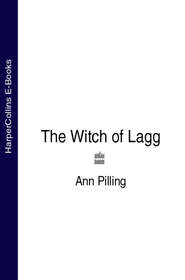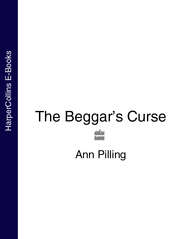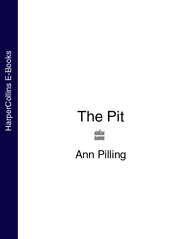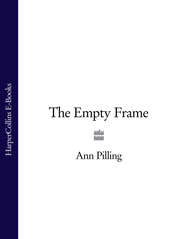По всем вопросам обращайтесь на: info@litportal.ru
(©) 2003-2024.
✖
Black Harvest
Настройки чтения
Размер шрифта
Высота строк
Поля
Their mother changed Alison in sight and sound of the sea. She spread an old bath towel out on the grass, and the baby kicked its chubby legs and gurgled while the Atlantic shimmered at them in a blue haze, only fields away.
“What a spot to choose!” Dad said. “Could we borrow your binoculars, Oliver? I think we can see the bungalow from here.”
Colin was the first to locate it. He focused on a group of farm buildings then followed a track past a huddle of stunted trees out of which smoke was curling. Between this and the sea’s edge was a long, low building, glaring white.
“It’s terribly new,” Prill said, disappointed. On the way down from Dublin they had driven past so many old cottages, some of them thatched, with wild gardens and hens scratching about, and cats lying on the roof. She didn’t fancy a month in a brand-new house.
“It was finished quite recently, I think. Dr Moynihan’s only stayed in it once himself, and they’re still digging into the hill to make a garage.”
Colin still had the binoculars. “Yes, I can see a concrete mixer and a pile of sand.”
“I wish you were staying too, Dad,” Prill said, feeling unsettled suddenly. “I wish you weren’t going straight back.”
“If the painting goes well I’ll come and join you, but I must make the most of the time with Dr Moynihan. I dare say he’ll be going back to America in a few weeks anyway, he never stays in one place for very long.”
David Blakeman was an art teacher who really wanted to paint. Colin couldn’t actually remember a time when he’d not painted, in the ramshackle sun-room built on to the back of the house. Those were the times he was happy, shut away for hours at weekends and emerging for the odd cup of tea, humming to himself. He liked painting people best. He’d done several drawings of friends’ children, but nobody had paid him very much for them.
“You’re too soft,” his wife was always telling him. “Your work’s really good.” But he usually shrugged and said nothing. Then, last summer term, he’d had a blazing row with the headmaster at school. It was all to do with timetables. He stormed home and said he was throwing his job up. He hadn’t, of course. The Blakemans were short of money and Mum was having a baby. But when the holidays started he cleared out the sun-room, prepared a large canvas, and started an oil painting of Colin and Prill.
Everyone who saw it said it was the best thing he’d ever done. The chairman of the local art group persuaded him to send it to London, and it was hung in an important exhibition. They were all pleased and for a while Dad was more cheerful than he had been for ages. But eventually the excitement fizzled out. He started to think about the new term at Horwood Comprehensive, and gloom settled down on him again.
Then, just before Christmas, a man came to see him on behalf of a Dr Peter Moynihan, an American industrialist with offices in New York and Amsterdam, and a home in Dublin. He’d seen the portrait of Colin and Prill in London and made enquiries about the artist. A month later, at a meeting of his directors, it was agreed that David Blakeman should be commissioned to paint Dr Moynihan and the portrait was to hang in the company’s main office, in New York.
Dad said it was a minor miracle. He resisted the temptation to give his job up but he privately hoped that in a couple of years he might be able to paint full-time. The summer was to be spent in Dublin, working on the portrait, and meanwhile Dr Moynihan had offered the rest of the family the use of his second home.
“It’s barely finished,” he explained on the phone. “But I’d like it lived in. It’s near the sea and I think they’d find it comfortable. If you would like to think about it…”
Would they! Money was tight and the Blakemans hadn’t had a holiday for three years. The sun beat down as Dad steered slowly down a bumpy track that left the main road and plunged through a patchwork of tiny fields towards the sea.
It was a superb position for a house and they all poked their heads out of the windows for a better view. Everyone was excited, except Oliver. Jessie, the Blakemans’ dog, was barking wildly in the back, and Alison had started whimpering again. Oliver didn’t like dogs or babies. Both were noisy and had strange smells. In fact, he was definitely unsure about the whole thing. And that made three of them.
The bungalow was the lightest place Prill had ever been in. Large windows on all sides looked out over the cliffs and the sea, and on the small fields behind. All the paint was white, the colours cool, the bedspreads and curtains sandy browns and fawns.
Colin and Prill went from room to room, peering in at the shining interiors. Nearly everything looked and smelt brand new, though the chairs and sofas were rather angular and uncomfortable. The pale walls were hung with very modern paintings; there was a locked glass cabinet in the main sitting-room, full of porcelain figures, and a collection of old snuff-boxes on a glass-topped table in the hall.
It was the most luxurious house they had ever set foot in, like a film-set or something featured in a magazine. No wonder Dr Moynihan had fussed about everything being locked up when they went out. Mum plonked the grizzling baby down on a thick, cream-coloured carpet, then thought better of it and carried her off to the kitchen.
“How fabulous!” Dad said, looking at the enormous fridge, and the dishwasher, and the automatic washing machine. “You can sit at this table, eating your cornflakes, looking at the sea, with all these machines whizzing round…”
“I suppose this is what people mean by a dream kitchen?” Prill said flatly, thinking about their own small, dark one at home.
“Don’t you like it?”
“Ye-es,” she said slowly. “But I thought it was going to be an old house.” She rubbed at her neck. She was feeling itchy, and sticky all over. “It’s awfully hot, Dad. Have they left the central heating on, by mistake?”
He was leaning against a radiator. “No. This is quite cold. It’s a hot day. Why don’t you go and have a look round outside?”
As Prill trailed off through the back door, Dad noticed how red the baby was. “Is she all right, Jeannie?” he said. “Do you think she’s running a temperature? Hope she’s not going to play up while I’m away.”
“Oh, it’s the car journey. She’ll settle down.”
Mrs Blakeman felt the baby’s forehead. “Mm. She is hot, you’re right. Still, it’s a warm day. I thought it was always supposed to rain in Ireland? Look at that sky! I think we’re in for a heatwave.”
Chapter Two (#ulink_e37227ab-8435-5b83-bf50-9ab5e34049a3)
OLIVER WAS TO share a bedroom with Colin. Without consulting anybody he got his case out of the car, lugged it inside, and started to unpack. Jessie kept leaping up at him and barking. He flapped his hands at her nervously.
“She’s a stupid dog,” Colin explained, realizing he was quite frightened. Jessie was nearly as big as Oliver. “She just wants to play. When people don’t want her she never seems to get the message. It just makes her worse.”
“Do you think she’s educationally subnormal?” Oliver said solemnly, pronouncing the long words very slowly.
“Dunno. Don’t think she’d get any O levels. Well, that’s what my dad says.”
Then the dog crashed into a table and sent a lamp flying. ‘Jessie!” Colin shouted. The snuff-boxes would have to be put vay or the whole lot would be dashed to smithereens. He took her outside and tied her to the concrete mixer. “Stay there, daft dog, till I’ve unpacked. Then I’ll take you for a walk.”
Oliver’s side of the bedroom was soon beautifully neat and tidy. His books were arranged on a shelf, his bed was made, a pair of winceyette pyjamas lay neatly folded on his pillow.
“Shouldn’t think you’d need those, Oliver, it’s so hot.”
Colin was sweating. He’d already stripped down to his shorts and kicked his sneakers off, and even the carpet felt warm. Oliver looked distastefully at his bare feet. “I’m not hot.”
He went on reading his book. He was wearing both socks and shoes, thick trousers and a shirt with a light sweater over it. Underneath that lot he no doubt wore thermal underwear. Colin was irritated. Oliver looked so cool, while he had a raging thirst and was sweating like a pig.
Then somebody tapped on the window. Oliver spun round and Colin nearly dropped his precious camera. A big red face was looking in at them and smiling.
Colin tried to open one of the panes but it was stuck. The person outside, a very fat man, with a clerical collar and a dusty black suit, pointed a plump finger and mouthed, “Front door. I couldn’t make anyone hear.”
“Oh, OK. Hang on,” Colin mouthed back, and went out into the hall. Oliver slipped a marker carefully into his book, placed it on top of the pyjamas, and followed silently.
“You just have the two boys, then?” the priest was saying, perched precariously on a kitchen stool. Mrs Blakeman was opening cupboard doors, looking for cups and saucers so she could make a cup of tea.
“Oh no, this one’s ours,” Dad explained. “Oliver’s a cousin.”
“Second cousin,” the small clear voice said emphatically. “By adoption.” He was staring at the fat clergyman, thinking he looked like Friar Tuck.
“Yes, yes of course,” the man said hurriedly. There was so little resemblance. The older boy had coarse ginger curls, green eyes and skin like a speckled brown egg. He was tall and well built and looked like a footballer. The cousin was small and scrawny with lank black hair and rather bulging blue eyes that stared at him out of a thin white face.
Father Hagan returned the stare, then smiled, before dropping his eyes. Something in the boy’s face made him feel uncomfortable. He couldn’t for the life of him say what it was.
“There are two more,” Dad was saying. “Our daughter Priscilla and a baby. She’s just six months old. They’ve gone down to the sea for a bit of air, Prill wasn’t feeling too good. It’s the long car journey, I expect.”
“You won’t have met old Donal yet, will you?”
“Donal? Er, no. We’ve only been here a couple of hours.”
“Well, you’ll see him around. But it’s as well to be warned. Sure he’s a good soul, Donal Morrissey, salt of the earth. But he’s got to that stage when the smallest change upsets him.”
“Does he live nearby then?”











